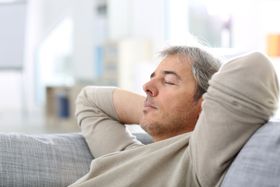3 PTSD Symptoms That Affect Your Sleep Cycle

Post-traumatic stress disorder is a condition triggered by a traumatic event. Memories of the incident can disrupt a person's mood and their ability to live their life, as well as their sleep cycle. Proper sleep management can help decrease these symptoms of PTSD and bring you some comfort.
How Does PTSD Affect Sleep Cycles?
1. Flashbacks & Intrusive Thoughts
Flashbacks are one of the hallmarks of PTSD. Memories of the even may haunt you, or you might be consumed with thoughts of what happened or how you behaved.
It can be challenging to turn these thoughts off when it's time to settle down and go to sleep. In fact, the quiet and the dark are often flashback triggers for many people.
2. Naps During the Day
 When PTSD intrudes on your ability to sleep regularly and maintain proper sleep management, you might naturally find yourself dozing off throughout the day. While a single brief nap isn’t typically a problem, nodding off here and there for a few minutes throughout the day can interfere with healthy sleep at night.
When PTSD intrudes on your ability to sleep regularly and maintain proper sleep management, you might naturally find yourself dozing off throughout the day. While a single brief nap isn’t typically a problem, nodding off here and there for a few minutes throughout the day can interfere with healthy sleep at night.
3. Hypervigilance
Hypervigilance is a state of increased sensitivity and alertness to your surroundings. You might feel like you can’t let your guard down, and this constant state of anxiety can cause fatigue over time. However, despite the exhaustion it causes, hypervigilance can prevent you from falling asleep and being vulnerable.
If you experience PTSD and your sleep quality has been impacted, contact Longacre Vascular Therapy in Lewisville, TX. Since 2001, Dr. Michel Longacre has been serving patients throughout north-central Texas. He offers solutions for health conditions such as inadequate sleep management, poor circulation, sports injuries, and chronic pain. His nonprescription approach involves a custom care plan that utilizes the latest technology and treatments. Call (214) 240-6200 or visit his office's website to schedule an appointment.
To learn more about how BEMER technology can help benefit your quality of life, click HERE.
About the Business
Have a question? Ask the experts!
Send your question

